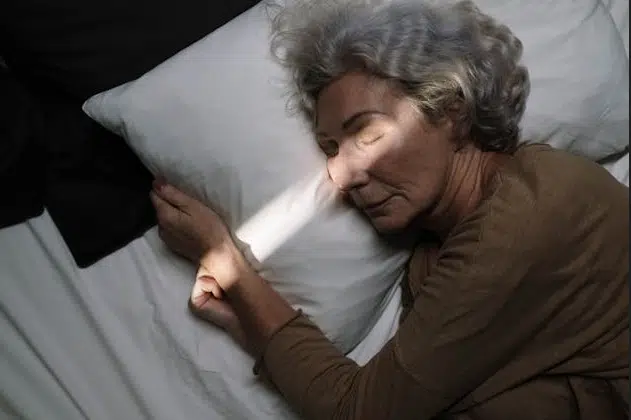Are ‘Granny Cams’ Legal in New York?
Posted in Senior Health Care Tips
Whether you are beginning in-home health care or moving into a senior residence, concerns around safety are incredibly common, especially for families who are new to these types of living arrangements.
Long-term care relationships depend on trust, but some families appreciate the additional peace of mind provided by installing discrete ‘granny cams,’ to get a firsthand view of their loved one’s day-to-day care.
Despite the growing presence of personal recording devices in daily life, laws and expectations around these devices remain murky. This article aims to clarify some of this confusion by reviewing the legality, ethics, and best practices around using ‘granny cams’ in New York, in both in-home and residential facility settings.
Are ‘granny cams’ legal in home caregiving settings?
The short answer is yes, granny cams are legal to use in private residence in New York State. The longer answer is that there are no laws that specifically prohibit or permit these devices in the home. As a result broader laws around recording apply.
New York is considered a one-party consent state, meaning that any conversation can be recorded provided that at least one party has consented to allow a recording device. This means that if you are installing a camera for a loved one, they or the caregiver must give consent (ideally written) before any recording takes place.
Are ‘granny cams’ legal in residential care facilities?
While these may seem like a resolved question when it comes to a home health care setting, things get more complex when discussing camera usage in a residential facility. While state laws may grant individuals the ability to use cameras legally, many facilities have rules written into their residential contracts expressly prohibiting hidden cameras, or may require signage warning others that activity within a room could be recorded.
Further complicating this question is the element of roommates. A camera placed in a shared room in a residential facility would inevitably capture footage of the camera-user’s roommate and potentially violate their personal privacy. As a result, it is highly recommended that written consent for any other individuals sharing a room be secured before introducing a camera.
Ethical considerations
Just because the law allows you to install a hidden camera to protect a loved one from possible abuse or neglect does not mean these devices should be used indiscriminately. Consider the following:
Caregiver expectation of privacy
While a hired home caregiver or residential facility attendant does not have a reasonable expectation of privacy while working in a client’s home, there are some areas that are best left off limits.
For example, installing a camera in a loved one’s living room, bed room, or kitchen is totally reasonable, however if both the client and caregiver use the same restroom or changing area, then it is best to err on the side of privacy and avoid installing a camera in this area. If, however, a caregiver has a separate bathroom or changing area from the client, then the one used by the client could have a camera installed, with the client’s permission.
Caregiver trust
A successful relationship between home caregiver and client depends on mutual trust. As a result, both parties should be as transparent as possible when it comes to matters like in-home surveillance or risk a caregiver discovering a previously unknown hidden camera and feeling understandably betrayed.
Rather than keeping cameras a secret, it is often wise to alert those entering the home that a camera is present. Not only does this eliminate the risk of a surprise, but also allows the camera to serve as a deterrent to poor behavior, rather than simply recording an issue as it happens.
In-home cameras, much like respect, work both ways. If a caregiver expresses concerns about the presence of a camera, do not be afraid to discuss these concerns with the caregiver/home care agency to make sure everyone remains comfortable. Remember, cameras can not only catch instances of abuse, but serve to exonerate a caregiver in the event of an accusation of mistreatment.
Considering your loved one’s privacy
A camera in the home will record everything – not just interactions between your loved one and their care team. As a result, it’s critical that your loved one be aware of the recording device and feel comfortable having another set of eyes in their home.
It can be totally normal to feel uneasy about a loved one having a constant video feed of day-to-day activities in the home, and those feelings should be addressed in an up front, honest conversation.
In the event your loved one is unsure about a camera, but you are concerned that they may be the victim of abuse, bringing in an impartial third party, like a doctor or social worker, might be key to reaching consensus among everyone involved.
If you are concerned a loved one is experiencing any form of abuse, we recommend you contact the NYC Department for the Aging Elderly Crime Victims’ Program. Alternatively, SelectCare’s team of home health care experts can help connect your family with community resources near your loved one for additional counseling and support. For a general overview of elder abuse, symptoms and warning signs, click here.
SelectCare believes every New Yorker has the right to live a happy, healthy life in their long-time home. To learn more about SelectCare and how we can help your family, call SelectCare today, request a free home health care guide, or read firsthand accounts of how SelectCare makes a difference on our client testimonials page.
